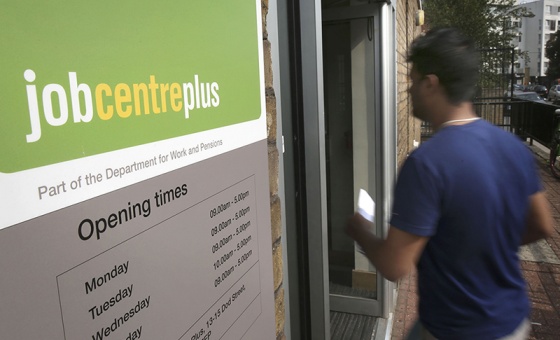This is the last article you can read this month
You can read more article this month
You can read more articles this month
Sorry your limit is up for this month
Reset on:
Please help support the Morning Star by subscribing here
LABOUR is using this weekend’s anniversary of Liz Truss’s disastrous mini-Budget to declare itself the champion of fiscal orthodoxy.
Truss’s brief spell at No 10, in which she announced sweeping unfunded tax cuts, spooked the markets and led to a sharp rise in debt.
It’s a factor in the rising cost of borrowing which has put hundreds of pounds a month on household mortgages. Labour can use it to portray the Tories as chaotic and inept.
An effective line of attack. But Rachel Reeves’s pledge in the Financial Times that she “will never undermine our economic institutions” will entrench market dogmas and limit the ability of elected politicians to shape economic policy.
The subtext is familiar from the Brexit debates: leave it to the experts. Truss’s clowning around in Downing Street has been a gift to the men (and, still only occasional, women) in suits. If you don’t follow the advice of the trained economists (and Reeves drops in a reference to “my time as an economist at the Bank of England”) then the economy will go off the rails.
It’s a misleading simplification. The pain of rising mortgages is not solely down to Truss. Over the last year it has been the direct result of Bank of England policy, which has raised interest rates repeatedly.
Reeves champions Bank of England “independence” — that is, our inability as a people to control our own monetary policy, which has been deliberately removed from the reach of the politicians we elect.
The “independent” Bank of England’s strategy to control inflation has not worked, since, as Unite’s Sharon Graham keeps pointing out, it does not address the key driver of inflation in grotesque corporate profiteering. Instead it focuses on trying to reduce demand — with senior officials openly discussing trying to provoke a recession to do so. And when the fastest price rises are for food and energy, reducing demand is straightforwardly an inhuman policy which will inflict deliberate suffering.
Reeves’s plan to strengthen the Office for Budget Responsibility and ban politicians from setting unbalanced budgets reinforces the tired dogma of an economic elite.
But the dogma is not so much misguided as partisan. It serves a class purpose. Bank of England policy has enriched the rich and indebted the poor. That’s why the extension of democratic control over institutions like the Bank needs to become a core left demand.
Former National Education Union leader Kevin Courtney has compared the inflationary crisis to an avalanche. The Russian invasion of Ukraine was like the loud noise that set it off: but damage would be limited without the build-up of snow. In that case, the vulnerability of households after 15 years of falling income.
Rising mortgages are comparable. Previous generations experienced even higher interest rates: but they were less vulnerable, because less indebted. The enormous household debt weighing on many families is down to an economy rooted in property speculation and the steep rise in the cost of housing that results, from around three times an average wage in the 1970s to eight or nine times one today.
That is a more fundamental cause of today’s economic problems than Truss. And while Truss’s plans were utterly reactionary, we should be aware that the banks whose concerted reaction brought her down would take similar measures to anyone who tried to break with orthodoxy from the other direction, and redistribute wealth downwards.
Reeves’s positioning is not surprising. It is part of a wider trend — asserting that politics is an elite affair that should be left to the professionals.
It is an anti-democratic reaction to the trauma inflicted on those born to rule by popular movements from below like Brexit and Corbynism. Clever framing around preventing a repeat of Truss should not lull us into swallowing this bid for government of the banks, by the banks and for the banks.










